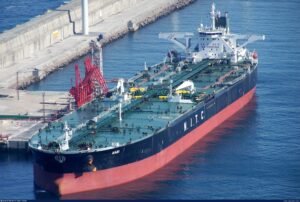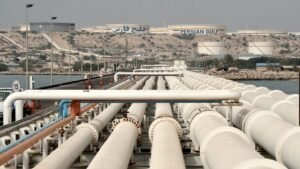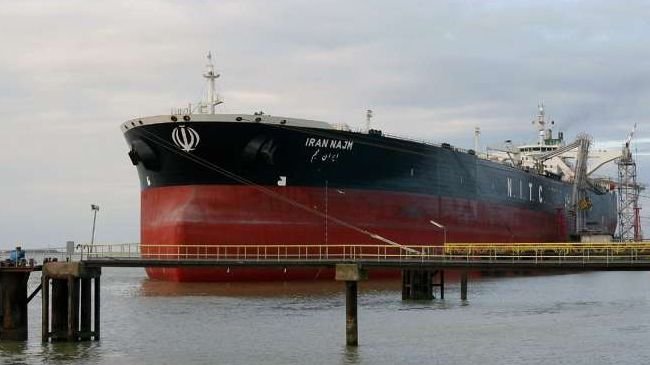IRGC’s Control Over Half of Iran’s Oil Exports
Reuters has reported that the Islamic Revolutionary Guard Corps (IRGC) has significantly expanded its control over Iran’s oil industry, now managing nearly half of the country’s oil exports. These exports represent a critical source of revenue for Tehran, funding its military and proxy forces across the Middle East.
According to the report published on Wednesday, December 18, Reuters cited accounts from over a dozen Western officials, security sources, and insiders within Iran. The IRGC uses front companies and a so-called “ghost fleet” of tankers to covertly transport sanctioned oil, primarily to China.

Despite strict Western sanctions imposed in 2018 during Donald Trump’s presidency, Iran continues to generate over $50 billion annually from oil exports, which serve as the regime’s primary foreign currency income and its lifeline to the global economy.
Six experts, including Western officials, security analysts, and Iranian sources, told Reuters that the IRGC’s share in Iran’s oil exports has surged sharply, growing from 20% three years ago to 50%. Citing U.S. Energy Information Administration estimates, the report states that Iran’s oil revenues reached $53 billion in 2023, compared to $54 billion in 2022, $37 billion in 2021, and just $16 billion in 2020.

Data from OPEC reveals that Iran’s oil production this year has exceeded 3.3 million barrels per day, the highest level since 2018.
Two Western sources told Reuters that the IRGC typically offers buyers a discount of $5 to $8 per barrel. Additionally, intelligence documents accessed by Reuters reveal that the Iranian government allocates oil directly to the IRGC and its Quds Force. These entities are responsible for marketing, transporting, and establishing revenue distribution mechanisms.
The report notes that the late Qassem Soleimani, the former commander of the IRGC’s Quds Force, had established a covert headquarters for smuggling oil in 2020. This operation was managed by Rostam Qasemi, Iran’s former oil minister.
The National Iranian Tanker Company, previously central to Iran’s oil exports, now assists the IRGC by transferring oil between ships to obscure its origins. The IRGC also utilizes a fleet of tankers dubbed the “ghost fleet” by the U.S. Treasury Department. In October, the U.S. sanctioned 17 ships in this fleet, adding 18 more in December.
Significant portions of Iran’s oil revenue are reportedly lost in the process of evading sanctions and rebranding the oil.
Iran’s draft budget for 2025, proposed by President Masoud Pezeshkian’s administration, anticipates daily oil exports of 1.85 million barrels. Of this, one-third is allocated to military forces, including the IRGC, under the guise of “strengthening defense capabilities,” while the remainder is split among the government, the National Iranian Oil Company, and the National Development Fund.
The IRGC, designated as a terrorist organization by several countries, continues to act as an international smuggling network, funneling Iran’s oil revenues into destabilizing activities and illicit operations worldwide.

 English
English



























































